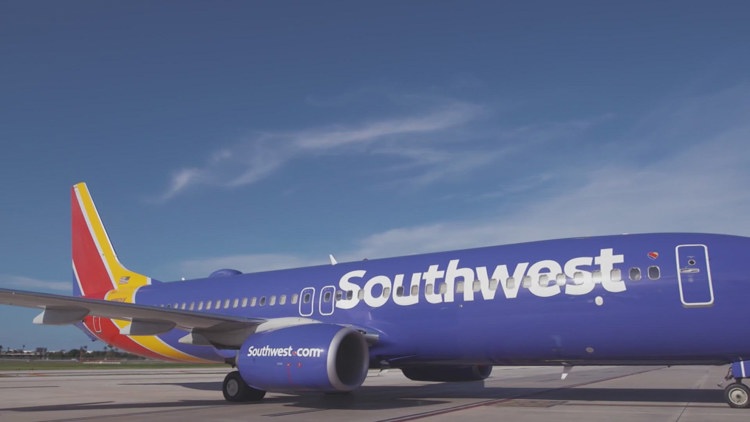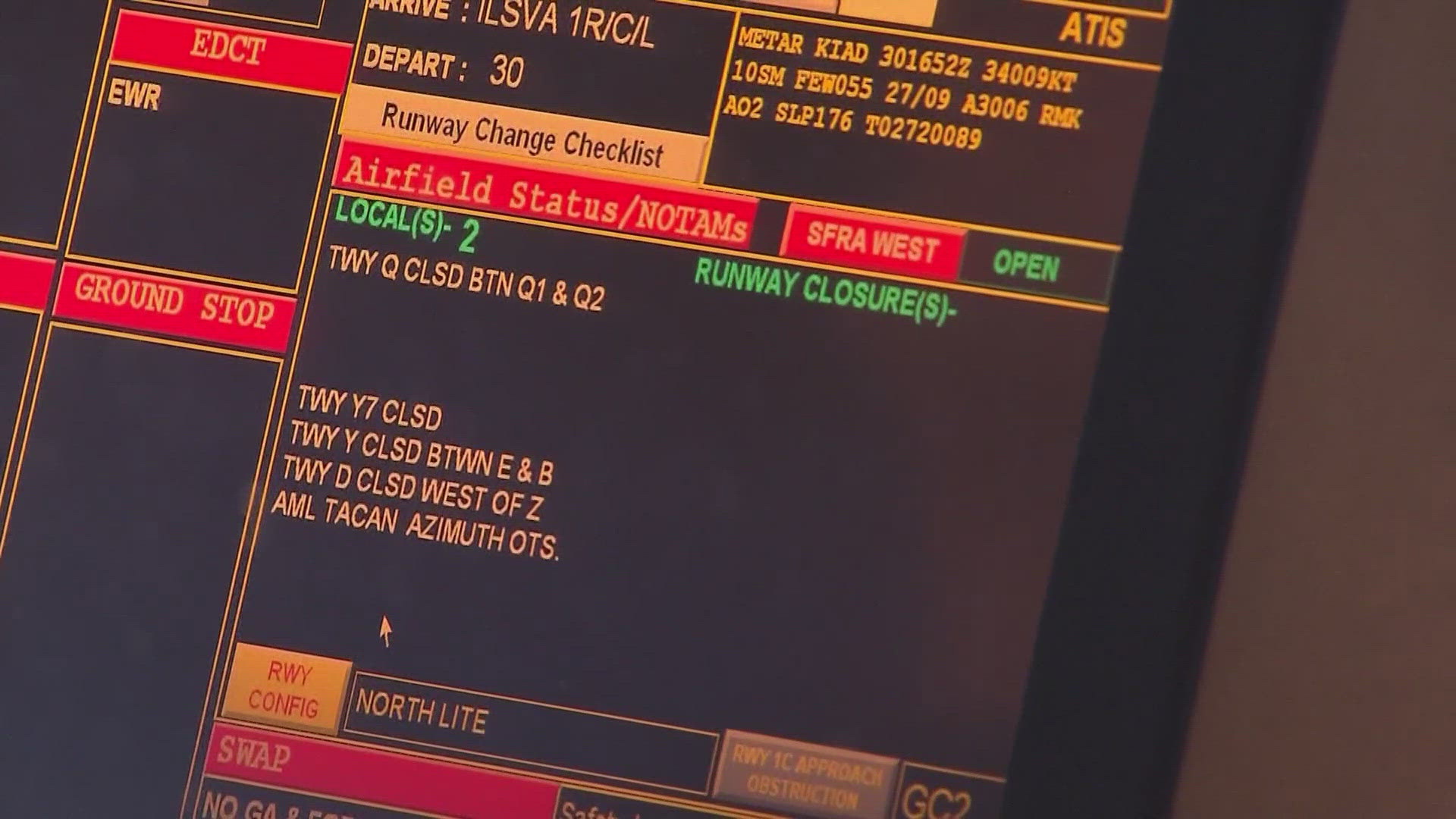DALLAS — This article was originally published by our content partners at the Dallas Business Journal. You can read the original article here.
Southwest Airlines Co. executives hope the plan they laid out for investors to get the carrier's financial performance back on track will take off. Now it's up to them to stick the landing.
CEO Bob Jordan and other top executives at Dallas-based Southwest unveiled what they described as a "transformational plan" to improve Southwest's financial performance during a Sept. 26 Investor Day event at the company's headquarters. The plan includes new products, new partnerships and a $2.5 billion share repurchase program. The company also provided additional details regarding its previously announced plans to begin offering assigned seating, "premium seating" and redeye flights.
At the heart of Southwest's plan, the company expects to provide $4 billion of incremental pre-tax earnings in 2027 and generate a return on invested capital of at least 15%.
Wall Street analysts, who were wined and dined with a Texas barbecue lunch and given a first look at one of Southwest's newly reconfigured Boeing 737 MAX 8 jets, have offered mixed reviews in the days since the event. While they generally have said Southwest's vision, if achieved, would represent a marked improvement in the company's performance, they also expressed a healthy dose of skepticism.
"Generally, we view Southwest’s plan as good for the company and the domestic U.S. industry, albeit execution will be the key," Raymond James analyst Savanthi Syth wrote in a note to investors.
Shares of Southwest rose 5.4% on Investor Day to $29.93. Since then, shares have traded in about the same range and were down 1.6% to $29.40 as of afternoon trading on Oct. 2.
Jamie Baker, an analyst at JPMorgan Chase & Co. described Southwest’s plan as "long on both change and ambition" in a note to investors.
"We are mostly satisfied with its roadmap towards improved [return on invested capital]," he wrote.
However, Baker said he will "temper" his confidence in some of Southwest's underlying assumptions because the company "was left with little choice but to impress" due to pressure coming from Florida-based hedge fund Elliott Investment Management LP. The activist investor has promised to wage a proxy battle aimed at ousting Jordan and other executives from Southwest.
TD Cowen analyst Tom Fitzgerald called Southwest's financial targets for 2027 "ambitious" in a note. He also expressed frustration due to a "lack of clarity on numbers" behind Southwest's revenue initiative.
"This will make it harder for investors to build conviction in their forecasts and risks creating noise in sellside estimates," Fitzgerald wrote.
Baker wrote that he was particularly surprised by Southwest's plans to leverage its current and incoming narrow-body Boeing jets to by selling some of its older Boeing 737-800s and newer 737 Max jets, in addition to executing aircraft sale-leaseback deals. Jordan said Southwest has a "unique opportunity to capture value and our earnings on excess aircraft we do not need with our moderate growth plans."
"We were NOT expecting a page to be torn from the Frontier playbook," Baker said, referring to one of Southwest's low-cost-carrier competitors. "Specifically, we were unprepared for the magnitude of Southwest’s planned embrace of sale-leaseback proceeds, which disappointingly figure significantly into its margin and ROIC targets, in our view."
Fitzgerald said he expected investors "would look poorly on results if asset sales end up being the driver of Southwest reaching the low end of its target ranges."
Joseph Rohlena, a senior director at credit rating agency Fitch Ratings Inc., viewed Southwest's desire to do sale-leasebacks more favorably.
"Southwest’s plans to limit capital spending and utilize strategic asset sales to offset future capital expenditures are credit-conscious steps that we believe will help alleviate the company's [free cash flow] issues," Rohlena wrote.
Previously, Fitch had anticipated Southwest's free cash flow would be "solidly negative" over at least the next three years, he wrote. He noted that future free cash flow partly depends on yet-to-be-announced details, such as the planned number of annual deliveries from Boeing and Southwest's mix of outright sales versus sale-leasebacks.
Overall, Fitzgerald maintained a "hold" rating for Southwest stock while Baker maintained a "neutral" rating. Syth rates Southwest stock as "outperform."
For their part, leaders at Elliott expressed doubt in the ability of Southwest's leadership to execute their plan and said they came away from Investor Day "even more convinced that current leadership is incapable of delivering on Southwest’s potential."
"Today’s announcement that adding assigned seating and premium products will take multiple years to implement – when peers have implemented similar changes in much shorter time frames – is further evidence that Mr. Jordan lacks the vision and capability to execute on these initiatives," Elliott Partner John Pike and Portfolio Manager Bobby Xu said in a statement.
"This is yet another long-dated promise through which Mr. Jordan is playing for time, not success, but he is playing with shareholders’ money."
Fitzgerald and Baker said they expect Southwest shares to remain volatile amid the ongoing fight with Elliott.
"It’s challenging for us to call what the next turn in the road might look like, though it appears that the potential for an amicable solution is ... pretty low in our minds," Baker wrote.



